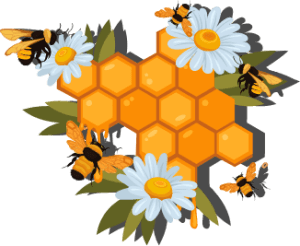
36% of the world’s bee population is dying each year. The decline of bees known as Colony Collapse Disorder, is attributed to a variety of reasons. Among them, the use of synthetic herbicides which takes out flowering weeds that were traditionally food sources for bees. Pesticide residues in flower pollens that are brought back to hives affecting the health of the colony. Monoculture (single crop) plantations that starve bees of food during non-flowering seasons.
One-third of the world’s food supply depends on the important role of bee-pollination. Without bees, not only will our food systems be affected, the supply of our beloved foods like almonds, apples and avocados may cease.

Bee Population
36% of the world’s bee population is dying each year. The decline of bees known as Colony Collapse Disorder, is attributed to a variety of reasons. Among them, the use of synthetic herbicides which takes out flowering weeds that were traditionally food sources for bees. Pesticide residues in flower pollens that are brought back to hives affecting the health of the colony. Monoculture (single crop) plantations that starve bees of food during non-flowering seasons.
One-third of the world’s food supply depends on the important role of bee-pollination. Without bees, not only will our food systems be affected, the supply of our beloved foods like almonds, apples and avocados may cease.
